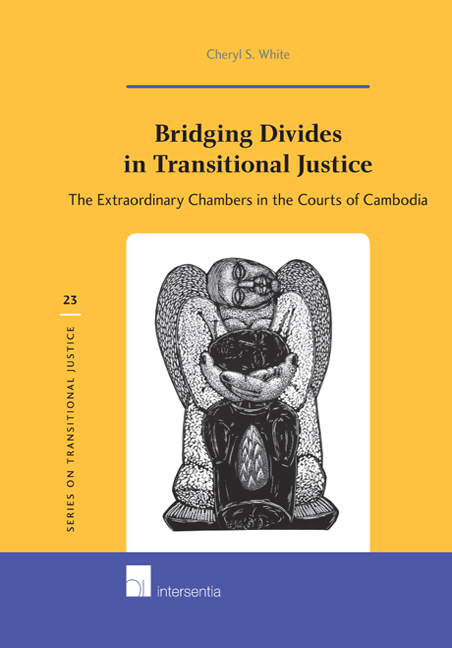Book contents
- Frontmatter
- Acknowledgements
- Contents
- Table of Cases
- Table of Legislation
- Table of Treaties
- List of Abbreviations
- Chapter 1 Introduction
- Chapter 2 Trials in Transitional Justice Theory
- Chapter 3 The Development of the Transitional Trial
- Chapter 4 The Creation of the Extraordinary Chambers in the Courts of Cambodia
- Chapter 5 Inquisitorial Criminal Procedure at the ECCC
- Chapter 6 Trial Dialogue in Case 001
- Chapter 7 The Voice of the Victim
- Chapter 8 The Voice of the Court in Judgment: Case 001
- Chapter 9 Conclusion
- Bibliography
- Index
- About the Author
Chapter 7 - The Voice of the Victim
Published online by Cambridge University Press: 27 September 2018
- Frontmatter
- Acknowledgements
- Contents
- Table of Cases
- Table of Legislation
- Table of Treaties
- List of Abbreviations
- Chapter 1 Introduction
- Chapter 2 Trials in Transitional Justice Theory
- Chapter 3 The Development of the Transitional Trial
- Chapter 4 The Creation of the Extraordinary Chambers in the Courts of Cambodia
- Chapter 5 Inquisitorial Criminal Procedure at the ECCC
- Chapter 6 Trial Dialogue in Case 001
- Chapter 7 The Voice of the Victim
- Chapter 8 The Voice of the Court in Judgment: Case 001
- Chapter 9 Conclusion
- Bibliography
- Index
- About the Author
Summary
INTRODUCTION
The trial dialogue around witness testimony within the inquisitorial procedural frame discussed in the last chapter was enlarged by the ECCC's civil party reparations scheme. This chapter examines the voice of the civil party in ECCC proceedings in the context of debate on the role of the victim and fair trial process. The chapter discusses the context in which the role of the victim in transitional trials has developed. Arguments advanced for minimising victim participation in adversarial international criminal proceedings, and the problems arising at the ECCC from victim participation in trial proceedings, are then raised.
The nature of civil party participation in the ECCC trial proceedings is then discussed. This includes the Trial Chamber's approach in the Duch trial to the hearing of civil party claims for reparation and the testimony of a number of victim-witnesses. The communicative dynamics of the ECCC's inquisitorial procedure are analysed as narrative testimony permitted a degree of victim story-telling within the proceedings, followed by the Court's examination.
The Court forum in Cases 002/01 and Case 002/02 under the revised civil party participation scheme is then discussed. These cases involve more complex indictments than the Duch case, and in each case the two remaining accused persons have not accepted legal responsibility for the crimes charged. Factors going to the fairness and expediency of trial proceedings are discussed to highlight the delicate balancing act in which the Court is engaged, in the context of ongoing civil party participation in the trials. The argument is that the scheme of victim inclusion adopted by the ECCC and the adaptations it has made go some way towards grounding a philosophy of the transitional trial on the basis of its communicative value in the interest of justice.
THE VICTIM AND TRANSITIONAL TRIALS
The role of the victim in the transitional trial may be conceived in expressive or communicative terms. Recalling the Argentinian transitional trial context, Osiel described the role of victims as witnesses, in communicative terms. Quoting Vezzetti, who supported trials for the military juntas, Osiel argued that the criminal procedure of the Court permitted the victims of crimes as witnesses to not only testify before the Court, but implicitly communicate their experience to the larger community.
- Type
- Chapter
- Information
- Bridging Divides in Transitional JusticeThe Extraordinary Chambers in the Courts of Cambodia, pp. 201 - 240Publisher: IntersentiaPrint publication year: 2017

